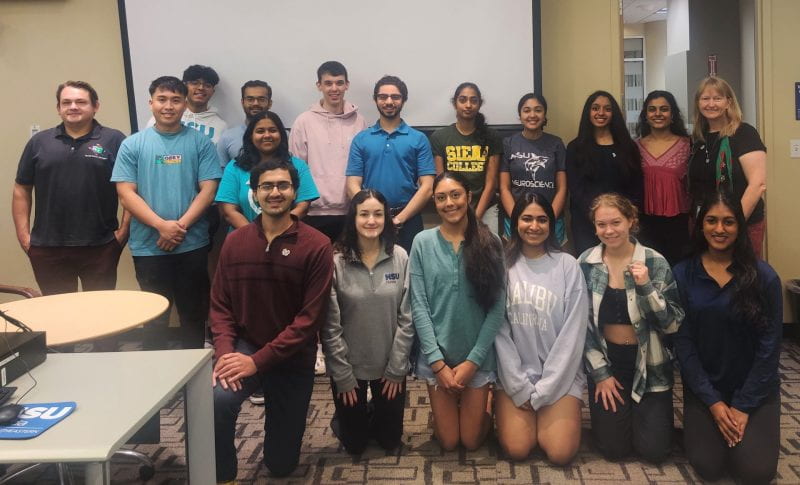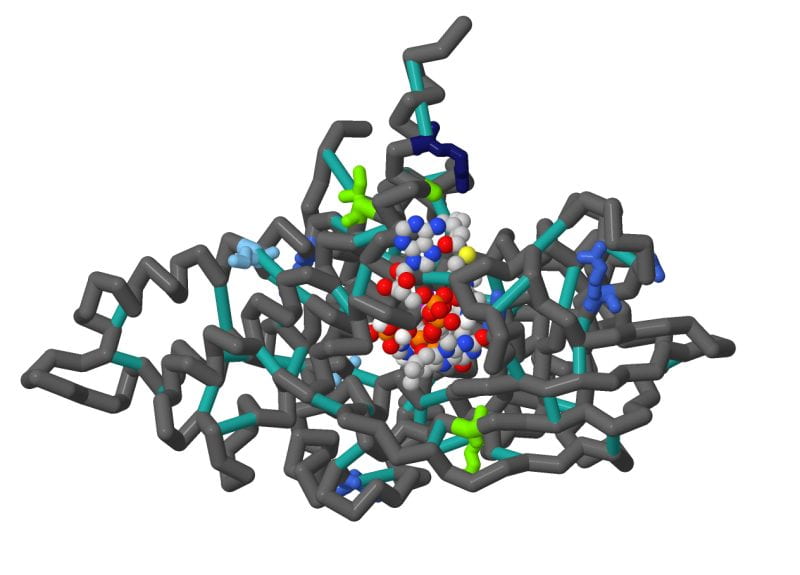Honors Course Leads to Conference Presentations


Members of the protein modeling course
Students in the Farquhar Honors College Intro to Protein Modeling course will present their innovative 3D protein models at the annual American Society for Biochemistry and Molecular Biology (ASBMB) conference this March. The models were created using advanced computational tools to predict a protein’s structure.
Understanding the structure of a protein is essential to altering its function. Students used a variety of methods to map out the structure, such as artificial intelligence and metal-binding force fields. Understanding the functions of proteins can give us hints to answer the question “What is life?” since proteins work together in a complicated and coordinated way to support life.
“Each year the creativity, passion and drive of the students results in a rich diversity of not only project ideas but innovative methods of accomplishing their lofty goals,” said course co-instructor Arthur Sikora, Ph.D., associate professor in the Department of Chemistry and Physics in the Halmos College of Arts and Sciences (HCAS). “I am learning and exploring the scientific world right alongside my students every time.”
Emily Schmitt Lavin, Ph.D., professor and chair in the Department of Biological Sciences at HCAS, teaches the course with Sikora. The course gives students experience as scientists, including conducting research, analyzing data and discussing and presenting their findings. At the end of the course, students can present their work at a conference of their choice and return as a mentor for the next cohort of students who take the course. More than 20 honors students have presented at conferences as part of the course.

Saleh’s protein model
The course has been especially influential for honors student Omar Saleh. Based on the work he completed in the course, Saleh was chosen to co-lead a protein modeling workshop at the American Chemical Society’s Biennial Conference on Chemical Education in Kentucky, where he will train and encourage faculty from other universities to create similar courses at their institutions.
“I feel both incredibly honored and privileged to take such a novel step in my undergraduate career,” said Saleh, a junior biology and neuroscience major. “It will be my first time traveling to another state, and the workshop will significantly increase both my leadership and public speaking skills. I am proud to showcase not only our wonderful protein modeling class with other out-of-state instructors, educators and faculty, but also the work my team and the other teams, both past and present, have produced.”
View projects from the honors Intro to Protein Modeling course.
Posted 02/04/24